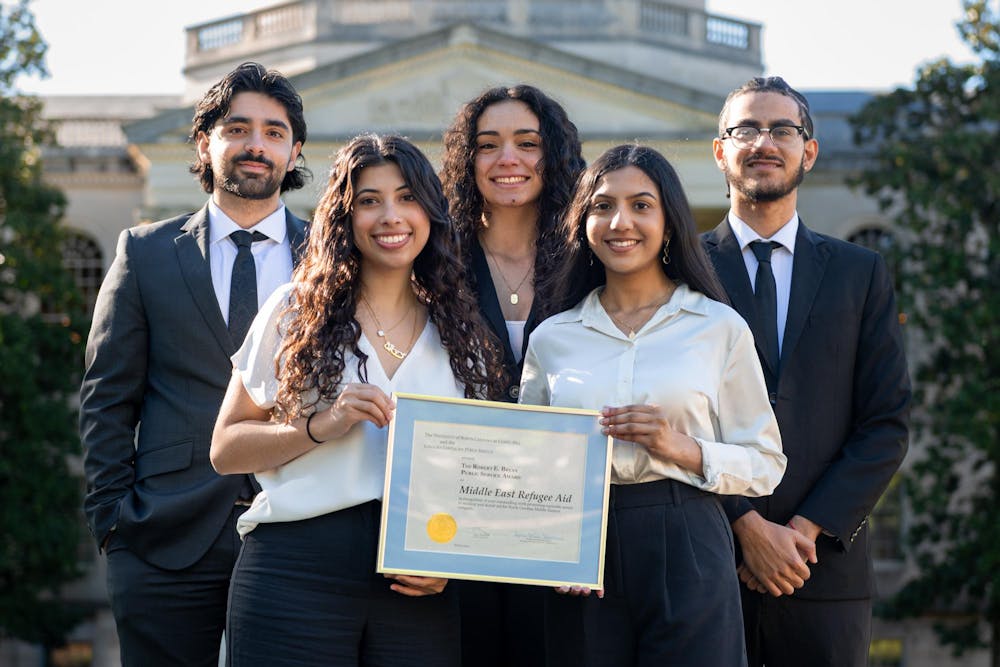A quote by Paul Farmer greets viewers on the website landing page of Middle East Refugee Aid, a nonprofit and UNC student-run organization:
“If access to health care is considered a human right, who is considered human enough to have that right?”
To Salma Hakam, a UNC junior and MERA’s director of public health, the quote touches on the importance of the group’s mission — to reduce health disparities in refugee communities through literacy-based interventions.
On Friday, MERA received the Robert E. Bryan Public Service Award from the Carolina Center for Public Service. Recipients of this award are characterized by “outstanding engagement and service to the state of North Carolina,” the center’s website says.
“We have put in so much effort to do the most good that we can, and I know we will continue to do so,” Hakam said. “So, being able to just have a second to reflect on that and also hear others speak about that was really special.”
UNC seniors Bilal Azzam and Tala Jazairi first established MERA as a nonprofit in 2022, but Azzam said it really gained momentum last summer. This academic year, they created a MERA student organization to make use of their resources on campus. Azzam, Jazairi, Hakam, Aabia Saeed and Adam Sherif serve on the student organization’s board.
Azzam, MERA’s director of medical aid, said the group focuses on promoting health literacy in all of its endeavors. After its founding, MERA leaders consulted with health professionals to see how they could best serve refugee communities around the world. The professionals highlighted that while there are medical and dental supplies in some refugee camps, a big problem is a lack of awareness of how to use them.
“What we realized is that if we instill educational curricula about preventative health in these refugee camps, then we can essentially eliminate a problem before it exists,” Azzam said.
MERA has pursued its goal of equitable healthcare access on a local and global scale.



